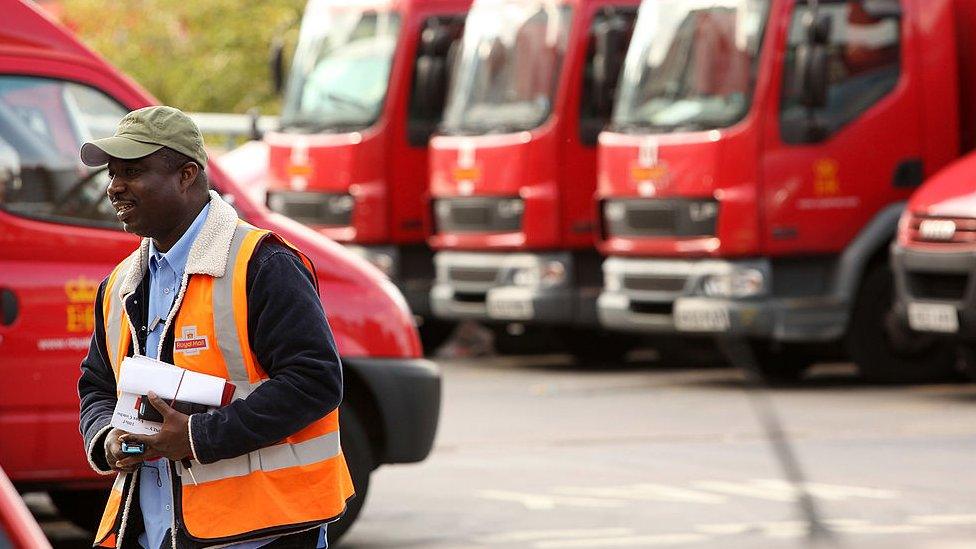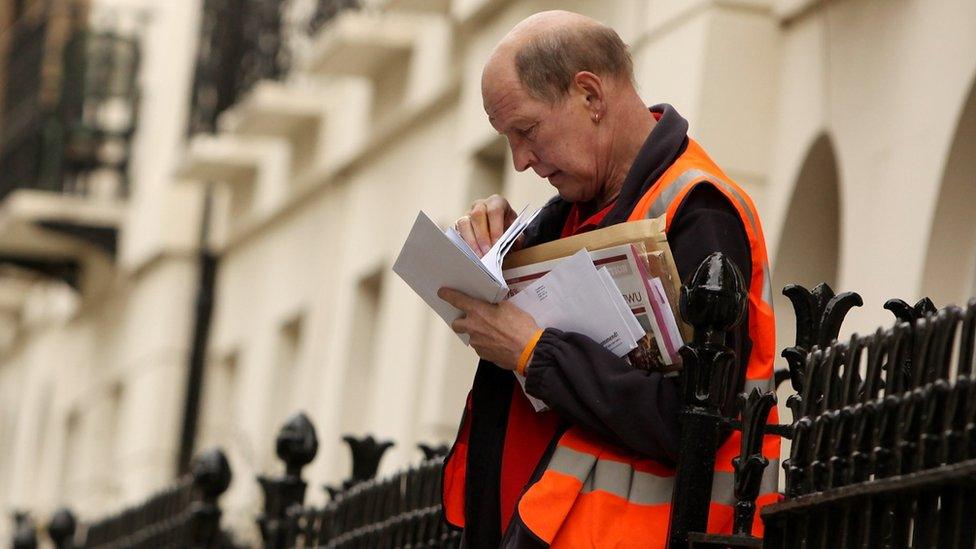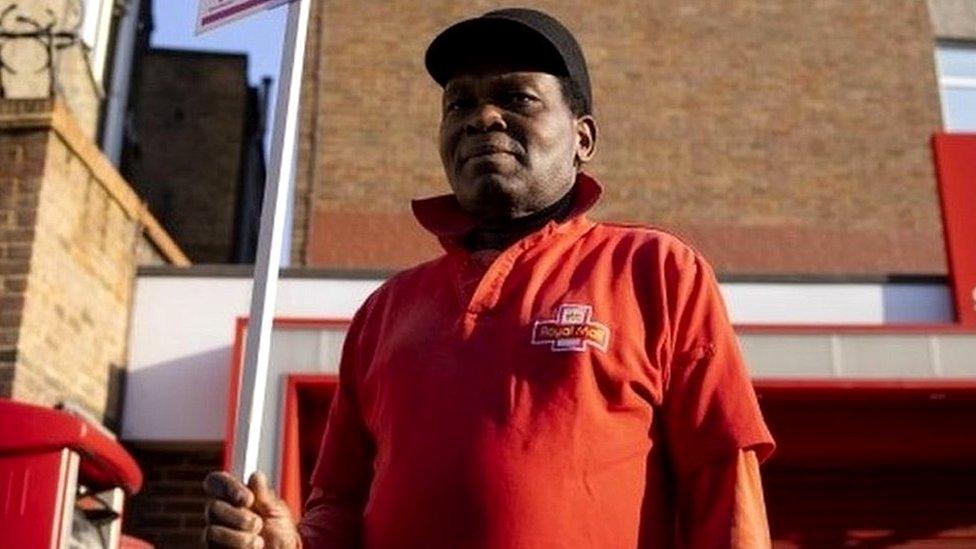Royal Mail staff announce fresh strikes over pay
- Published
- comments

Workers at Royal Mail have announced further strikes in a dispute over pay and conditions.
Staff in the Communication Workers Union (CWU) are already set to walk out on Thursday this week.
They will now also strike for 48 hours on 30 September and 1 October - the latest move in a worsening dispute.
The CWU said its 115,000 members did not support an "imposed" 2% pay rise. Royal Mail says the union rejected an offer worth up to 5.5%.
CWU general secretary Dave Ward said: "There can be no doubt that postal workers are completely united in their determination to secure the dignified, proper pay rise they deserve.
"We can't keep on living in a country where bosses rake in billions in profit while their employees are forced to use food banks."
He highlighted the £400m the company had returned to shareholders in the last year, saying "our members won't accept pleads of poverty from the company".
Royal Mail's latest adjusted operating profit for the year to March was £416m, up from £344m previously, but the company says it is currently losing £1m a day.
A spokesperson from Royal Mail apologised to customers for the inconvenience and reiterated that it was now a parcels business.
"We must adapt old ways of working designed for letters," the spokesperson said.
"Strike action has weakened our financial position and is threatening the long-term job security of our postmen and women," they added.
"The CWU has a responsibility to recognise the reality of the situation Royal Mail faces as a business and to engage urgently on the changes required."
Royal Mail said it was doing all it could to "minimise any delays". On strike days it will deliver as many Special Delivery and Tracked 24 parcels as possible, it said. It will also prioritise the delivery of medical prescriptions where possible.
A range of workers including Openreach engineers, BT call centre staff, railway workers and barristers have walked out in recent weeks as wages fall further behind soaring inflation of about 10%.
Related topics
- Published17 August 2022

- Published26 August 2022

- Published1 August 2023
